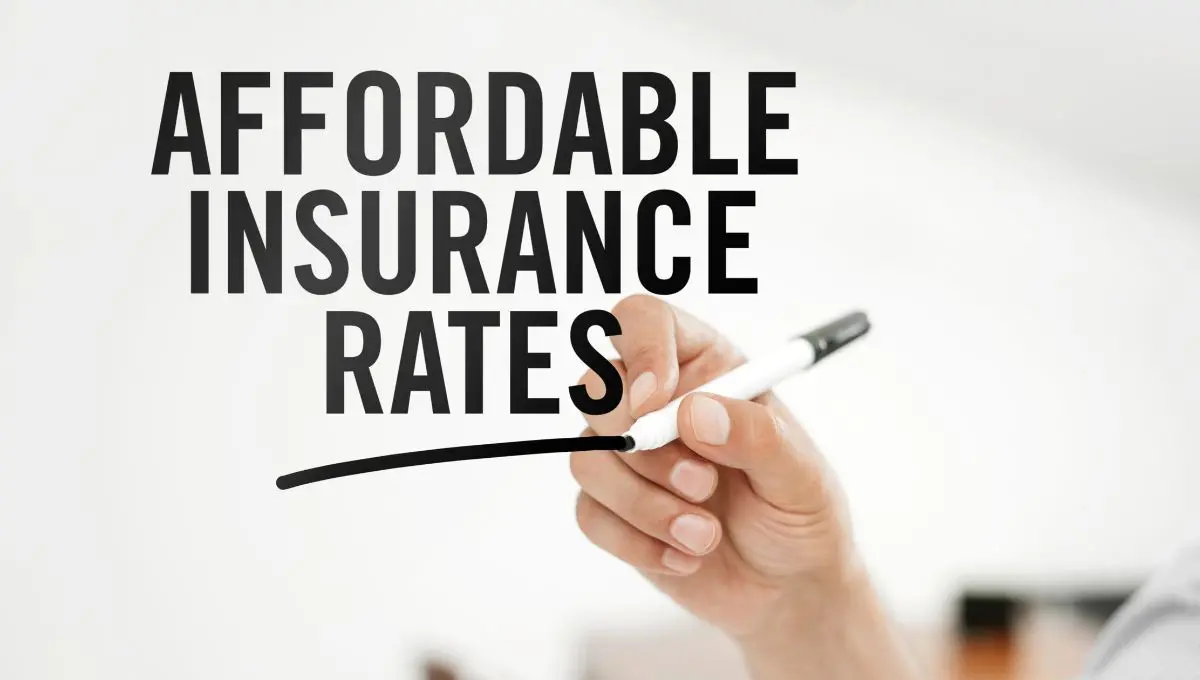Contents
3 Ways to Understand Your Insurance Rates: Insights into How Insurance Premiums Are Determined
Short Intro:
Exploring the universe of insurance can frequently lead to wanting to unravel an intricate riddle, particularly with regards to understanding how insurance is not entirely set in stone. Notwithstanding, acquiring an understanding of this cycle is significant for anybody hoping to improve their monetary preparation and guarantee they’re getting the best incentive for their inclusion. This article will investigate three ways to understand your insurance rates, giving clarity on this frequently hazy part of your individual budget.
Market measurements highlight the significance of understanding insurance rates. A new report found that a huge number of Americans don’t completely get a handle on how their insurance expenses are determined, prompting possible excessive charges and underutilization of accessible advantages. With the insurance business in the US advancing quickly, remaining informed about how rates are resolved can prompt significant reserve funds and more compelling inclusion.

Risk Evaluation
The most vital phase in understanding your insurance rates implies getting a handle on how organizations evaluate risk. Insurance is generally about overseeing chance, and organizations utilize complex calculations to assess the probability of a case being made. Factors like age, wellbeing history, driving record, and even financial assessment can impact your gambling profile. Understanding the models of your backup plan utilization can give you insights into how to possibly bring down your rates through way of life changes or further develop your FICO assessment.
Risk evaluation is certainly not a static cycle; it develops as new information opens up and as individual conditions change. By participating in rehearsals that alleviate risk according to the point of view of your backup plan, you can straightforwardly impact your expenses. For instance, going to a cautious driving course could lessen your rates in the event that you have auto insurance, while taking on a better way of life could emphatically influence your extra security expenses.

Strategy Subtleties and Inclusion Choices
Plunging further into the particulars of your strategy and the inclusion choices accessible is another vital stage. The degree of inclusion, deductibles, and strategy restricts all play a critical role in deciding your insurance rates. Higher deductibles can prompt lower month-to-month charges; however, they likewise mean more personal costs in some cases. On the other hand, deciding on extensive inclusion could expand your rates yet give inner harmony through more extensive assurance.
Understanding the harmony between inclusion and cost is critical. Survey your strategy subtleties consistently and evaluate whether your ongoing inclusion lines up with your requirements. Some of the time, changing your inclusion can prompt better rates without altogether affecting your degree of insurance.

Relative Shopping and Discussion
At last, relative shopping and exchange are amazing assets for understanding and impacting your insurance rates. The insurance market is serious, and rates can differ altogether between suppliers for basically a similar inclusion. By getting statements from different guarantors and looking at them, you can acquire influence in haggling better rates with your ongoing supplier or choose to change to a more savvy choice.
Besides, don’t misjudge the benefit of talking about your approach with an insurance specialist or agent. They can give customized guidance on the most proficient method to change your approach subtleties to match your spending plan and inclusion needs. At times, reliability limits or packaging different strategies (like home and auto insurance) can prompt better rates.
Understanding your insurance rates requires a proactive methodology implying risk evaluation perception, a top-to-bottom strategy survey, and a dynamic market examination. By demystifying these viewpoints, you can pursue informed choices that adjust your insurance inclusion to your monetary objectives, guaranteeing you get the most ideal worth. Keep in mind that information is power, particularly with regards to exploring the intricacies of insurance expenses.

End and Last Considerations
Understanding your insurance rates is something beyond a monetary need; it’s a stage towards assuming command over your individual budgets and guaranteeing that you’re sufficiently safeguarded without overpaying. The excursion to grasping how insurance is not set in stone—through risk evaluation, strategy subtleties, and similar shopping—provides you with the information to pursue engaged choices. By effectively engaging with these angles, you can fit your insurance strategies to accommodate your one-of-a-kind necessities and monetary circumstances, guaranteeing that you’re covered, yet covered shrewdly.
This investigation into the factors affecting insurance rates highlights the unique idea of insurance itself. It’s an update that as your life develops, so too should your inclusion. Routinely returning to your insurance arrangements, furnished with an understanding of what influences your rates, permits you to change as required, guaranteeing your inclusion stays ideal. A proactive methodology can prompt huge investment funds and more powerful insurance over the long haul.
As we wrap up, let this article act as a source of inspiration. Plunge into your insurance arrangements, outfitted with recently discovered information and certainty. Pose the hard inquiries, search out better rates, and don’t make due with less than what you merit. Keep in mind that understanding your insurance rates isn’t just about setting aside cash; it’s tied in with getting your genuine serenity.

FAQs: 3 Ways to Understand Your Insurance Rates
1. What factors impact my insurance rates?
Your gambling profile, which may include your age, medical history, driving record, and FICO rating, is one of the variables that affects your insurance rates. Different determinants incorporate the points of interest of your arrangement, for example, inclusion cutoff points, deductibles, and the kind of insurance.
2. How might I bring down my insurance charges?
By improving your risk profile (such as maintaining a good driving record or raising your FICO rating), choosing higher deductibles, reducing pointless inclusion, and routinely reviewing and changing your strategy to ensure it meets your ongoing needs, you can lower your insurance costs.
3. For what reason do insurance organizations evaluate risk?
Insurance organizations survey chance to decide the probability of a case being made. This evaluation assists them with setting expenses relative to the gamble they’re taking by protecting you. Lower-risk people or elements regularly get lower charges, mirroring the diminished probability of a case.
4. Is it advantageous to look for insurance?
Indeed, it is profoundly helpful to look for insurance. It permits you to look at rates from different suppliers, guaranteeing you get the best inclusion at the most serious cost. It likewise gives influence to haggling better rates with your ongoing backup plan.
5. Will haggling with my insurance organization prompt lower rates?
Haggling with your insurance organization can prompt lower rates, particularly on the off chance that you’re outfitted with statements from competitors or can exhibit changes in your gambling profile that make you a lower risk. Insurance organizations value holding customers and may offer limits or change your expenses in like manner.
6. How frequently would it be a good idea for me to survey my insurance strategy?
Evaluating your insurance strategy no less than once per year or after critical life-altering events (like purchasing another house, getting hitched, or having a youngster) is suggested. Normal audits guarantee that your inclusion lines up with your requirements and may uncover valuable chances to change your approach for better rates.
7. Do all insurance types utilize similar models for deciding rates?
While numerous rules for deciding rates are standard across different sorts of insurance (like gamble evaluation), explicit factors can fluctuate. For instance, your clinical history may have an impact on the cost of your health insurance, while your driving record may have an impact on auto insurance rates. Each kind of insurance has novel measures custom-made to the dangers it covers.









